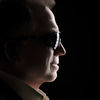UV filter- with and without
Feb 8, 2018 14:35:24 #
We call people who live a mile above sea level 'Flat landers.' 

burkphoto wrote:
Use only clear glass protectors on digital camera lenses, unless you are more than a mile/1800 meters above sea level.
Feb 8, 2018 15:02:13 #
leftj
Loc: Texas
jacklewis014 wrote:
Quality filter is a must.
Going sans filter? - is it worth the risk to damaging the lens if you have an accident?
Going sans filter? - is it worth the risk to damaging the lens if you have an accident?
A hood takes care of that.
Feb 8, 2018 15:04:57 #
DMGill wrote:
We call people who live a mile above sea level 'Flat landers.' 

Or wimp breathers... I was in Keystone, CO, one summer. While riding the ski lift to the top of the mountain, I was light headed. I looked down and saw a guy on a mountain bicycle just tearing up the hill. Suddenly, I felt very inadequate...
Feb 8, 2018 16:29:21 #
Once any filter of any kind is attached to the lens front ring it optically adds two refracting surfaces of supposedly infinite radii of curvature. So do the two surface align perfectly perpendicular the lens' optic axis. Are the two surfaces perfectly flat and parallel. Now the glass part might be true, but the other factor is the threaded ring. Next would be the exactness of the lens threads. For very critical work, one could contrive an optical test bench and test the lash up under standard and controlled conditions. Another way to check on the fuzzyness of the sign lettering might be to set your camera for manual override of auto focus. My Sony a6300 does that and magnifies the subject when the manual focus ring moves. If that shows no improvement, then it must be a filter deficiency. In theory, two perfectly flat parrallel surfaces can not optically refract light.
Feb 8, 2018 16:34:34 #
The effect clearly shows with the green lighted sign, but is there any part of the bridge that looks sharper when looking at the original image. Posting and downloading an image involves two stages of operation which could cover up the detail needed to assess. The image will have some degree of DOF, but one girder or detail might be sharper.
Feb 8, 2018 16:49:04 #
 It takes at least a week to get a reasonable degree of acclamation to the low oxygen content, but when you get back down to sea level you feel like your turbo-charged for a few days.
It takes at least a week to get a reasonable degree of acclamation to the low oxygen content, but when you get back down to sea level you feel like your turbo-charged for a few days.burkphoto wrote:
Or wimp breathers... I was in Keystone, CO, one summer. While riding the ski lift to the top of the mountain, I was light headed. I looked down and saw a guy on a mountain bicycle just tearing up the hill. Suddenly, I felt very inadequate...
Feb 8, 2018 17:11:05 #
MWojton wrote:
2 days ago I posted picture #1 and asked for advic... (show quote)
It's called lens flare, and one extra piece of glass on the front end can exaggerate it.
Feb 8, 2018 17:23:39 #
A lot of us have been saying over and over don't use UV filters unless you really have to. This is just one example of how they will degrade your image quality.
Feb 8, 2018 17:33:38 #
Dennis833 wrote:
A lot of us have been saying over and over don't use UV filters unless you really have to. This is just one example of how they will degrade your image quality.
Particularly important when shooting a light source, as in this case.
Feb 8, 2018 19:13:26 #
something else to think about, the Delaware can run pretty fast in that area and with the rocks, there is a mist in the air, you could be picking that up with the camera, even though you cant see it with your eyes. while your in that area be sure to go to the park down stream and shoot all the old equipment.
Feb 8, 2018 19:44:20 #
Jim Bob wrote:
Let sand or other abrasive scrape across your "unprotected" lens and then tell us UV filters offer no protection. I challenge you to place a quality filter on your best lens, take a picture, remove the filter and take a picture under identical conditions and tell us with a straight face that the difference is clearly visible.
I did say "I do not believe they provide protection for anything other than blowing sand, salt spray, and mud although they are useful for those conditions."
Feb 8, 2018 21:58:04 #
jacklewis014 wrote:
Quality filter is a must.
Going sans filter? - is it worth the risk to damaging the lens if you have an accident?
Going sans filter? - is it worth the risk to damaging the lens if you have an accident?
A hood/lens cap provides all the practical protection you need (barring a projectile aimed directly head on with the cap off) - a filter is another glass element - even if a quality one at that - increases the likelihood of flare and reflections....one reason primes are generally sharper than zooms is fewer glass elements.
I also meant to say in my previous post - one exception to my rule is if the camera is in a sandstorm or other hostile environment (lots of water/salt spray - e.g. Niagra Falls, Nevada desert in sandstorm, white water rafting, sailing, etc.) , then the benefits outweigh the drawbacks....but in that case the entire camera and lens may need to be protected, possibly in an underwater housing or similar accessory.
Also note some lenses can't even take a front filter - some fisheyes and PC lenses have bulging front elements.
Feb 8, 2018 22:33:00 #
wdross
Loc: Castle Rock, Colorado
MWojton wrote:
2 days ago I posted picture #1 and asked for advic... (show quote)
There are some on this site that believe there is no longer any need for UV filters because the sensors are now "blind" to UV. But my findings, after going through the scientific data and literature, are that the sensors are now relative insensitive to UV but not totally blind. For most shooting now, UV is not a consideration. But at high altitudes and stronger UV sources, it still can affect one's shooting. The need for a UV filter is lessened but not elimated.
Feb 9, 2018 00:32:00 #
DirtFarmer wrote:
Methodology: ... Also there is a 20 minute video on the subject at
https://petapixel.com/2015/08/31/photo-mythbusters-how-much-do-uv-filters-actually-protect-your-lenses/ that shows how tough lenses can be compared to filters.
https://petapixel.com/2015/08/31/photo-mythbusters-how-much-do-uv-filters-actually-protect-your-lenses/ that shows how tough lenses can be compared to filters.
EXCELLENT video! I have always thought the "mandatory use" of extra glass to protect the lens was over the top when it comes to drops etc. Thanks for posting.
Feb 9, 2018 05:06:21 #
Pablo8
Loc: Nottingham UK.
camerapapi wrote:
Problem with a filter is that they get dirty and degrade your image. .
Problem with a filter is that they get dirty and degrade your image. .
******************************************************************
And if you don't use a filter, it is the front element of the lens that gets dirty?
If you want to reply, then register here. Registration is free and your account is created instantly, so you can post right away.







